Space

Educators and Parents, Sign Up for The Cheat Sheet
Weekly updates to help you use Science News Explores in the learning environment
Thank you for signing up!
There was a problem signing you up.
-
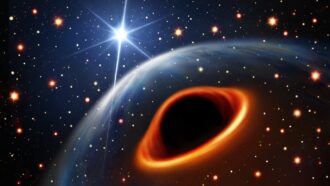 Space
SpaceAnalyze This: A recently spotted space object is puzzling scientists
A pulsar’s invisible partner could be an oddly heavy neutron star or a very light black hole.
-
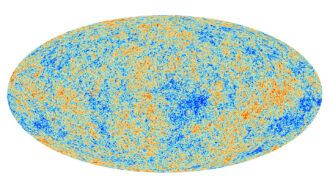 Space
SpaceScientists Say: Cosmic microwave background
The cosmic microwave background is the afterglow of the Big Bang.
-
 Planets
PlanetsThe desert planet in ‘Dune’ is pretty realistic, scientists say
Humans could live on the fictional planet Arrakis from Dune. But thankfully giant sandworms probably could not.
-
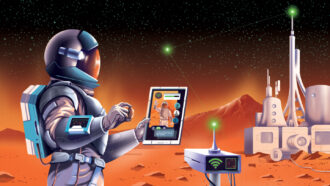 Space
SpaceHere’s how to build an internet on Mars
Future Red Planet residents will need to get online to talk to each other and Earth. But that will require a lot of new tech.
By Payal Dhar -
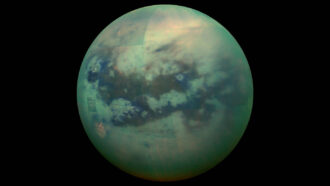 Space
SpaceComets may be the source of sandy dunes on Saturn’s largest moon
In an early reshuffling of the solar system, comet collisions and other space rocks could have sent dusty bits falling to Titan’s surface.
By Nikk Ogasa -
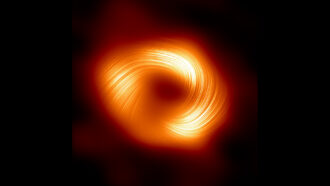 Space
SpaceCheck out the magnetic fields around our galaxy’s central black hole
Astronomers have captured polarized light coming from the Milky Way’s supermassive black hole. This offers insight into its magnetic fields.
By Adam Mann -
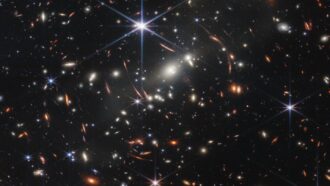 Space
SpaceDid James Webb telescope images ‘break’ the universe?
James Webb data show bright, massive galaxies that would appear to require new physics to explain. But maybe not, Hubble data suggest.
By Adam Mann -
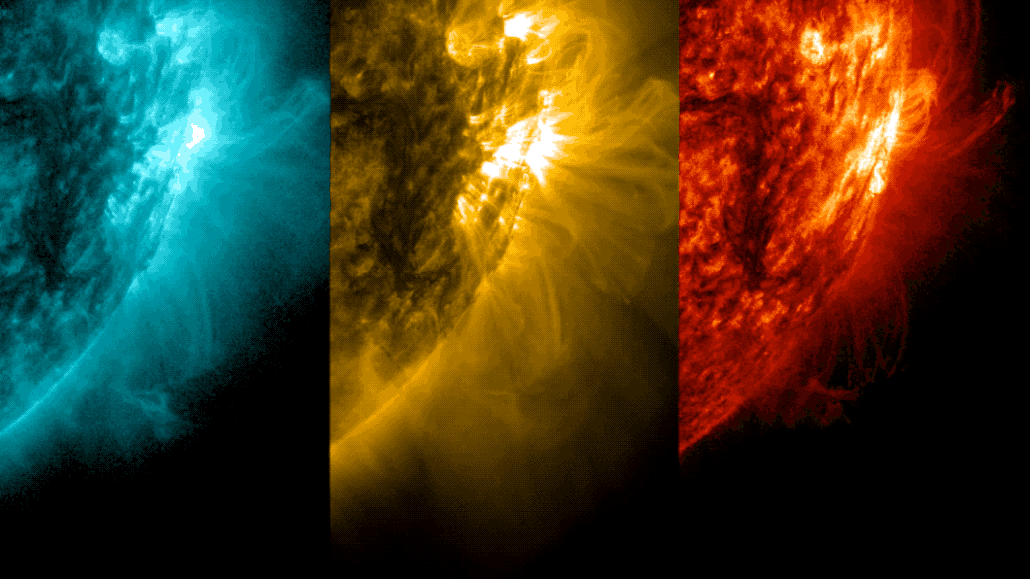 Space
SpaceExplainer: What is the solar cycle?
Here’s what causes the sun’s 11-year cycle of activity and what it means for us on Earth.
By Adam Mann -
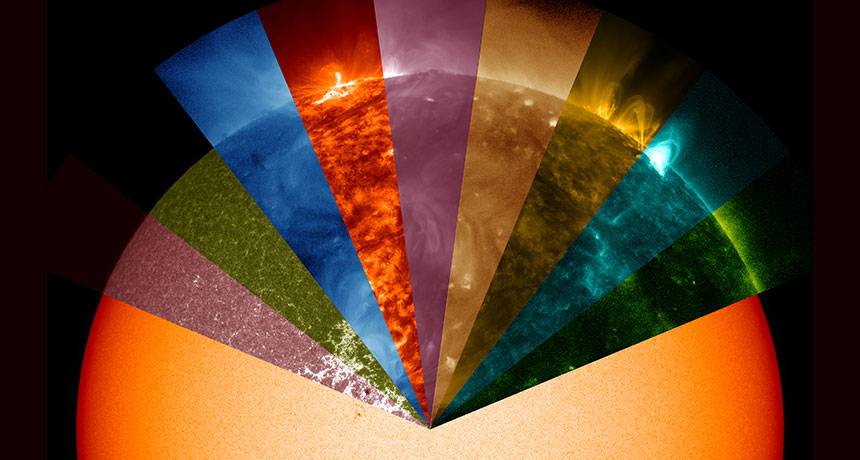 Space
SpaceScientists Say: Corona
The sun’s corona can only be seen without special instruments during a total solar eclipse.
-
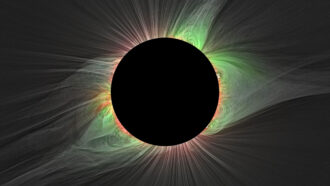 Earth
EarthGet ready for the 2024 total solar eclipse
A total solar eclipse will race across North America on April 8, 2024, providing a rare opportunity for both scientists and casual observers.
-
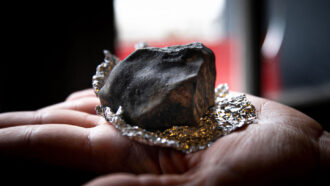 Space
SpaceLet’s learn about meteorites
Meteorites are bits of space rock that have crash-landed on Earth — or on another celestial body.
-
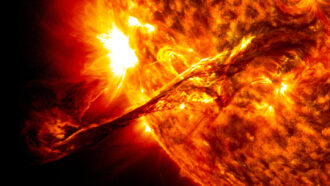 Space
SpaceScientists Say: Solar Cycle
This roughly 11-year cycle in the sun’s activity can affect space weather that messes with Earthly technology.